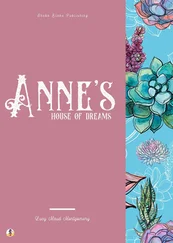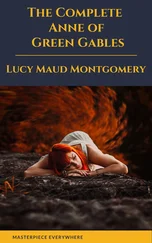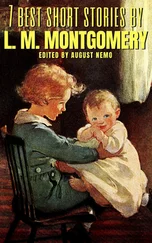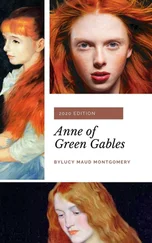Lucy Montgomery - Lucy Maud Montgomery Short Stories
Здесь есть возможность читать онлайн «Lucy Montgomery - Lucy Maud Montgomery Short Stories» весь текст электронной книги совершенно бесплатно (целиком полную версию без сокращений). В некоторых случаях можно слушать аудио, скачать через торрент в формате fb2 и присутствует краткое содержание. Жанр: Детская проза, на английском языке. Описание произведения, (предисловие) а так же отзывы посетителей доступны на портале библиотеки ЛибКат.
- Название:Lucy Maud Montgomery Short Stories
- Автор:
- Жанр:
- Год:неизвестен
- ISBN:нет данных
- Рейтинг книги:5 / 5. Голосов: 1
-
Избранное:Добавить в избранное
- Отзывы:
-
Ваша оценка:
- 100
- 1
- 2
- 3
- 4
- 5
Lucy Maud Montgomery Short Stories: краткое содержание, описание и аннотация
Предлагаем к чтению аннотацию, описание, краткое содержание или предисловие (зависит от того, что написал сам автор книги «Lucy Maud Montgomery Short Stories»). Если вы не нашли необходимую информацию о книге — напишите в комментариях, мы постараемся отыскать её.
Lucy Maud Montgomery Short Stories — читать онлайн бесплатно полную книгу (весь текст) целиком
Ниже представлен текст книги, разбитый по страницам. Система сохранения места последней прочитанной страницы, позволяет с удобством читать онлайн бесплатно книгу «Lucy Maud Montgomery Short Stories», без необходимости каждый раз заново искать на чём Вы остановились. Поставьте закладку, и сможете в любой момент перейти на страницу, на которой закончили чтение.
Интервал:
Закладка:
"Do you think Madame Laurin will go?" asked the lady.
"I don't know. I am going to offer her my little black doll. If she will not come for that, there is nothing else I can do."
A flash of interest lighted up the lady's brown eyes. She bent forward.
"Is it your doll you have in that box? Will you let me see it?"
Little Joyce nodded. Mutely she opened the box and took out the black doll. The lady gave an exclamation of amazed delight and almost snatched it from Little Joyce. It was a very peculiar little doll indeed, carved out of some black polished wood.
"Child, where in the world did you get this?" she cried.
"Father got it out of a grave in Egypt," said Little Joyce. "It was buried with the mummy of a little girl who lived four thousand years ago, Uncle Roderick says. She must have loved her doll very much to have had it buried with her, mustn't she? But she could not have loved it any more than I do."
"And yet you are going to give it away?" said the lady, looking at her keenly.
"For Denise's sake," explained Little Joyce. "I would do anything for Denise because I love her and she loves me. When the only person in the world who loves you is going to die, there is nothing you would not do for her if you could. Denise was so good to me before she took sick. She used to kiss me and play with me and make little cakes for me and tell me beautiful stories."
The lady put the little black doll back in the box. Then she stood up and held out her hand.
"Come," she said. "I am Madame Laurin, and I shall go and sing for Denise."
Little Joyce piloted Madame Laurin home and into the kitchen and up the back stairs to the kitchen chamber—a proceeding which would have filled Aunt Isabella with horror if she had known. But Madame Laurin did not seem to mind, and Little Joyce never thought about it at all. It was Little Joyce's awkward, unMarshall-like fashion to go to a place by the shortest way there, even if it was up the kitchen stairs.
Madame Laurin stood in the bare little room and looked pityingly at the wasted, wistful face on the pillow.
"This is Madame Laurin, and she is going to sing for you, Denise," whispered Little Joyce.
Denise's face lighted up, and she clasped her hands.
"If you please," she said faintly. "A French song, Madame—de ole French song dey sing long 'go."
Then did Madame Laurin sing. Never had that kitchen chamber been so filled with glorious melody. Song after song she sang—the old folklore songs of the habitant , the songs perhaps that Evangeline listened to in her childhood.
Little Joyce knelt by the bed, her eyes on the singer like one entranced. Denise lay with her face full of joy and rapture—such joy and rapture! Little Joyce did not regret the sacrifice of her black doll—never could regret it, as long as she remembered Denise's look.
"T'ank you, Madame," said Denise brokenly, when Madame ceased. "Dat was so beautiful—de angel, dey cannot sing more sweet. I love music so much, Madame. Leetle Joyce, she sing to me often and often—she sing sweet, but not lak you—oh, not lak you."
"Little Joyce must sing for me," said Madame, smiling, as she sat down by the window. "I always like to hear fresh, childish voices. Will you, Little Joyce?"
"Oh, yes." Little Joyce was quite unembarrassed and perfectly willing to do anything she could for this wonderful woman who had brought that look to Denise's face. "I will sing as well as I can for you. Of course, I can't sing very well and I don't know anything but hymns. I always sing hymns for Denise, although she is a Catholic and the hymns are Protestant. But her priest told her it was all right, because all music was of God. Denise's priest is a very nice man, and I like him. He thought my little black doll— your little black doll—was splendid. I'll sing 'Lead, Kindly Light.' That is Denise's favourite hymn."
Then Little Joyce, slipping her hand into Denise's, began to sing. At the first note Madame Laurin, who had been gazing out of the window with a rather listless smile, turned quickly and looked at Little Joyce with amazed eyes. Delight followed amazement, and when Little Joyce had finished, the great Madame rose impulsively, her face and eyes glowing, stepped swiftly to Little Joyce and took the thin dark face between her gemmed hands.
"Child, do you know what a wonderful voice you have—what a marvellous voice? It is—it is—I never heard such a voice in a child of your age. Mine was nothing to it—nothing at all. You will be a great singer some day—far greater than I—yes. But you must have the training. Where are your parents? I must see them."
"I have no parents," said the bewildered Little Joyce. "I belong to Grandmother Marshall, and she is out driving."
"Then I shall wait until your Grandmother Marshall comes home from her drive," said Madame Laurin decidedly.
Half an hour later a very much surprised old lady was listening to Madame Laurin's enthusiastic statements.
"How is it I have never heard you sing, if you can sing so well?" asked Grandmother Marshall, looking at Little Joyce with something in her eyes that had never been in them before—as Little Joyce instantly felt to the core of her sensitive soul. But Little Joyce hung her head. It had never occurred to her to sing in Grandmother Marshall's presence.
"This child must be trained by-and-by," said Madame Laurin. "If you cannot afford it, Mrs. Marshall, I will see to it. Such a voice must not be wasted."
"Thank you, Madame Laurin," said Grandmother Marshall with a gracious dignity, "but I am quite able to give my granddaughter all the necessary advantages for the development of her gift. And I thank you very much for telling me of it."
Madame Laurin bent and kissed Little Joyce's brown cheek.
"Little gypsy, good-by. But come every day to this hotel to see me. And next summer I shall be back. I like you—because some day you will be a great singer and because today you are a loving, unselfish baby."
"You have forgotten the little black doll, Madame," said Little Joyce gravely.
Madame threw up her hands, laughing. "No, no, I shall not take your little black doll of the four thousand years. Keep it for a mascot. A great singer always needs a mascot. But do not, I command you, take it out of the box till I am gone, for if I were to see it again, I might not be able to resist the temptation. Some day I shall show you my dolls, but there is not such a gem among them."
When Madame Laurin had gone, Grandmother Marshall looked at Little Joyce.
"Come to my room, Joyce. I want to see if we cannot find a more becoming way of arranging your hair. It has grown so thick and long. I had no idea how thick and long. Yes, we must certainly find a better way than that stiff braid. Come!"
Little Joyce, taking Grandmother Marshall's extended hand, felt very happy. She realized that this strange, stately old lady, who never liked little girls unless they were pretty or graceful or clever, was beginning to love her at last.
The Man on the Train
When the telegram came from William George, Grandma Sheldon was all alone with Cyrus and Louise. And Cyrus and Louise, aged respectively twelve and eleven, were not very much good, Grandma thought, when it came to advising what was to be done. Grandma was "all in a flutter, dear, oh dear," as she said.
The telegram said that Delia, William George's wife, was seriously ill down at Green Village, and William George wanted Samuel to bring Grandma down immediately. Delia had always thought there was nobody like Grandma when it came to nursing sick folks.
But Samuel and his wife were both away—had been away for two days and intended to be away for five more. They had driven to Sinclair, twenty miles away, to visit with Mrs. Samuel's folks for a week.
Читать дальшеИнтервал:
Закладка:
Похожие книги на «Lucy Maud Montgomery Short Stories»
Представляем Вашему вниманию похожие книги на «Lucy Maud Montgomery Short Stories» списком для выбора. Мы отобрали схожую по названию и смыслу литературу в надежде предоставить читателям больше вариантов отыскать новые, интересные, ещё непрочитанные произведения.
Обсуждение, отзывы о книге «Lucy Maud Montgomery Short Stories» и просто собственные мнения читателей. Оставьте ваши комментарии, напишите, что Вы думаете о произведении, его смысле или главных героях. Укажите что конкретно понравилось, а что нет, и почему Вы так считаете.












